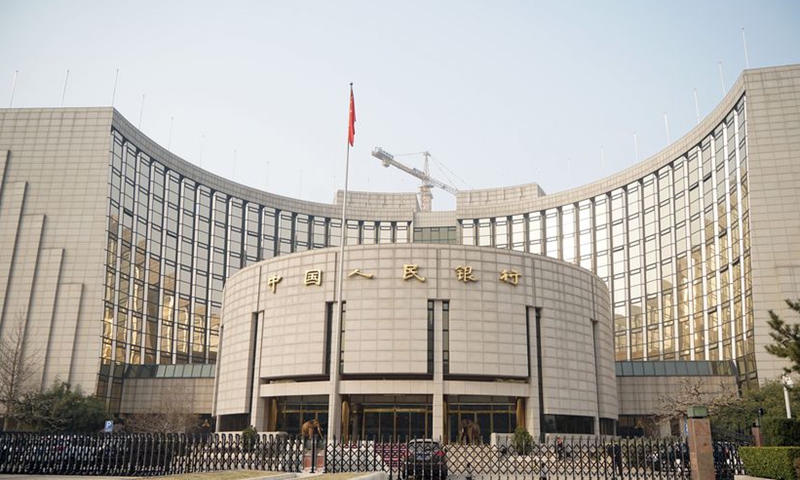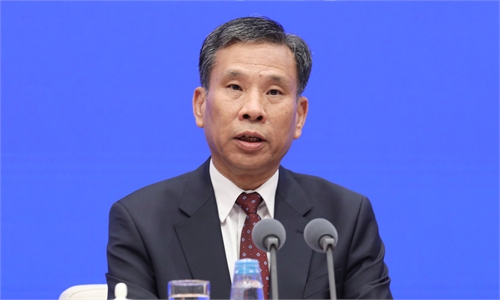China unveils cash management rules to facilitate overseas investment in bond market as financial opening continues

A view of People's Bank of China in Beijing. File photo: VCG
China's central bank on Friday unveiled cash management rules for overseas institutional investors looking to the country's bond market, in a fresh move to beef up the attraction of a continuously opening financial market.
The new rules are set to streamline overseas institutions' investment in China's bond market and lower their trading costs, analysts said, expecting more deregulating moves to channel overseas investors into a wider range of bond portfolios.
Describing the rule announcement as an effort to ramp up the two-way opening of the fi-nancial market, the People's Bank of China (PBC), the country's central bank, said in a statement on its website on Friday that the new regulation aims to boost the appeal of Chi-na's bond market for overseas institutional investors.
The new regulation, which comes into force on January 1, 2023, crystallizes a unified set of management rules for cash accounts, receipts and payments, remittances and statistics and monitoring, among other areas involved in overseas institutional investors' commitments to the country's bond market, read the PBC statement.
The new regulation will facilitate overseas institutions' investment in the bond market as it partially eases curbs on overseas funds investing in Chinese bonds and lowers the trading costs of their bond investment, Wu Jinduo, head of fixed income at the research institute of Great Wall Securities, told the Global Times on Friday.
Among the highlights of the new rules are an improvement in spot foreign exchange sale and purchase management that allows overseas institutional investors to handle forex set-tlements through third-party financial institutions other than settlement agents.
Additionally, overseas instructional investors will gain access to expanded forex hedging channels, according to the new rules that also scrap the limits on the number of counterparties in over-the-counter trades.
Furthermore, the central bank encourages overseas institutional investors to use the yuan for cross-border receipts and payments and to finalize cross-border yuan settlement using the country's cross-border interbank payment system CIPS, when it comes to their Chinese bond investments.
The Friday announcement followed a move in May to allow qualified overseas institutional investors to trade bonds on the exchange market in an attempt to expand capital flows into the country.
The bond market opening, as part of a broader push for financial market deregulation, has seen overseas institutions flocking into one of the world's largest bond markets.
By the end of August, the country's varied outstanding bonds hit 142.3 trillion yuan ($19.99 trillion), making it the world's second-largest bond market, central bank data showed.
Since 2017, overseas institutional investors in the country's bond market have expanded from overseas central banks and overseas yuan clearing banks into commercial banks, asset management institutions and pension funds, among others. The number of overseas institutions that have forayed into the interbank market has jumped to 1,057 from 407, covering more than 60 countries and regions including major developed economies, per PBC numbers.
The number of overseas institutions selling bonds in the interbank market has also risen to 67 from 24 over the years.
As of the end of August, overseas investors held 3.5 trillion yuan in domestic bonds, a surge of 2.3 times compared with the end of 2017, read official statistics.
Looking ahead, the country still has leeway to open its bond market wider to foreign inves-tors, according to Wu.
At present, the majority of Chinese bonds held by overseas institutions are treasuries and policy financial bonds, plus a tiny amount of high-grade credit bonds, she said, noting that urban investment bonds - debt fundraising instruments issued by local governments to fi-nance infrastructure projects - and bonds with lower credit ratings and even high-yield bonds could all be among the pool of investable bonds to appeal to overseas investors.



